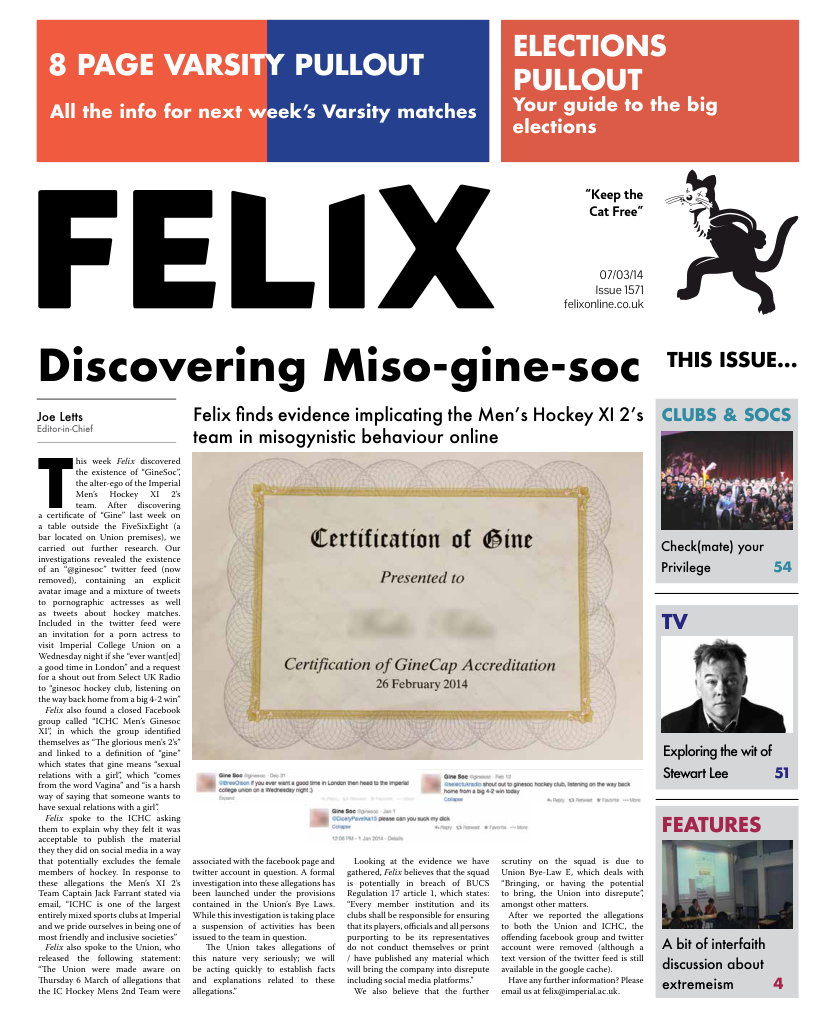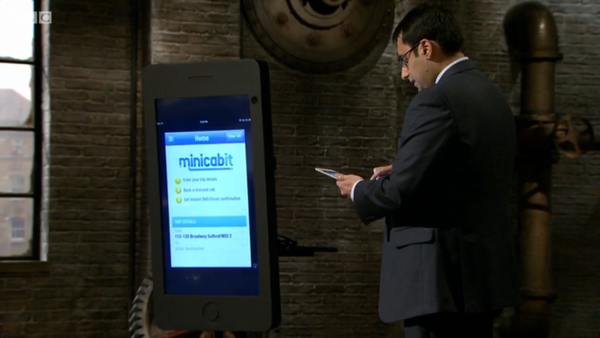Exploring the Student Consultation Framework
David Goldsmith wants your feedback on how College can best consult students about changes that affect you
Dear Students, I am writing to ask for your feedback on something I am developing. Running for the position of Union President I promised, in my manifesto, to “Demand a new mechanism to ensure student consultation from the outset of College decision-making” and in doing so help prevent situations like North Acton1 happening again. I am developing a Student Consultation framework in order to fulfill this promise. It is a framework that will ensure that students are given enough input into decision-making that affects them, before decisions are made. I am asking for your help because it is important that there is strong student feedback to influence what the finished framework will look like. To help please go to http://tinyurl.com/qfeudwa in order to view the framework. Please e-mail me with any feedback you have at union.president@ic.ac.uk. Otherwise you are welcome to attend Union Council at 18:30 on the 11th March in the Union Dining Hall (Floor 1, Union Building), where I will be presenting the framework, to give your feedback.
The aim of the framework is to standardise what students and staff together believe constitutes ‘appropriate consultation with students’ based on the impact of a decision being made. The framework produces for the user recommended consultation methods and avenues for acting on them. By doing this we set a minimum standard for how and how much students are consulted on decisions that affect them. I have so far individually consulted with student reps and 15 senior members of College staff2 in order to produce a workable draft. I am now bringing this draft to Union Council, the Union newsletter, Felix and my blog to give students the opportunity to feed back with their thoughts. This will heavily inform what the next draft will look like. I will also be presenting it for feedback to more College staff (including the Rector and the Provost), at the four Faculty Teaching Committees, three quality committees, the Provost’s Board, College Senate and College Council3 before running a campaign to make people aware of it- this will include training student officers in its use.
Not only does undergoing such a thorough consultation in developing a ‘consultation framework’ avoid hypocrisy, it also ensures that this framework has true buy-in and input from all stakeholders and will therefore be trusted as a useful tool.
Refernces:
- Read about the Union’s #AgainstActon campaign last year here:https://www.imperialcollegeunion.org/your-union/campaigns/accommodation
- Those who have so far been consulted and their feedback incorporated into this draft: · Debra Humphris, Vice Provost (Education) · Denis Wright, Director of Student Support · Muir Sanderson, Chief Financial Officer · Dean Pateman, Academic Registrar · Simon Archer, College Tutor · Jonathan Narcross and JP Jones, College Communications · Lorraine Craig, Department of Earth Science and Engineering · Stephen Richardson, Associate Provost (Institutional Affairs) · Bridgette Duncombe, Department of Chemistry · Jenny Higham, Vice Dean (Education and Institutional Affairs), Faculty of Medicine · Jon Tucker, Faculty Operating Officer, Business School · Jeremy Bradley, Department of Computing · Emma Caseley and Jemma Allan, Education Office · Mike Russell and Saul Batzofin, ICT · Simon Harding-Roots, Chief Operations Officer · Rachel Hounslow and William Brown, Student Academic Representatives, Department of Chemical Engineering
- Details on College committees can be found here: · http://www3.imperial.ac.uk/registry/proceduresandregulations/committees · http://www3.imperial.ac.uk/secretariat/collegegovernance/governancestructure
Questions I would like you to consider: I’m looking to get feedback or suggestions on any part of the mechanism and its implementation. I have though included some ideas for specific feedback that would be particularly useful for me:
- Do you agree with the impact level each example has been placed against? (pg. 6 + 7)
- Do you feel that the consultation methods recommended are appropriate for each impact level? (pg. 10-17)
- Do you agree with the guidance given throughout the document?
Thank you in advance for your help. Best wishes, David.







